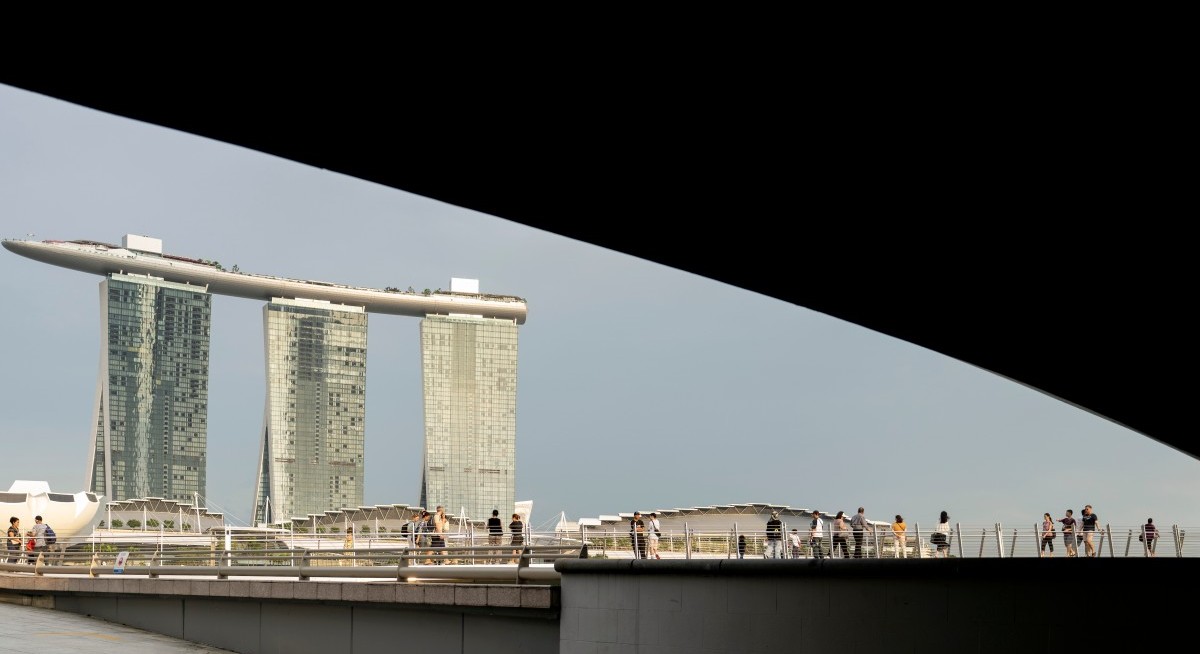The other half I find in my schooling years. I was schooled in the local system. Days began with me wearing stiff uniforms amongst the masses of fellow sweaty students through morning assemblies, and usually ended with visits, either to the nearby convenience shop for a sweet treat or the school detention room — my friends stuck with me for both.
To this day, my secondary school years remain the best of my life. My school was in the heart of Boon Keng, a residential area named after Dr Lim Boon Keng — one of those notable Straits Settlement-era Singaporeans whose names are now better known as MRT stations.
I’m not sure if Lim knew a neighbourhood would be named after him, much less what he would’ve thought of it. This was actually an essay topic posed to me in Secondary Three: ‘What would Lim think of Boon Keng?’. I wrote at the time — and I stand by the same opinion today — that it would be stupid of him not to like the area, and it didn’t matter what he thought of it, because I loved it.
People in the neighbourhood were sincere, just as ready to scold mischief as they were to treat students to ice cream on a hot day. Every Thursday and Friday, outside Bendemeer Market, an elderly amputee would play the erhu from his wheelchair. His playing — scratchy and frankly poor — was often drowned out by the bustle around him, so tips were few. But it didn’t matter. Uncle still got kopi on the house from the drinks stall. The McDonald’s by Boon Keng MRT Station, my after-school haunt, still features the same cast of key characters — staff and regulars — unchanged since 2012.
See also: Temasek and GIC's returns 'reasonable' and 'within expectations'
When I piece those memories together, I find the Singapore I know. I had a blessed childhood and adolescence, thanks to my parents’ efforts and the camaraderie of friends. But beyond the nostalgia overload and the business of growing up, I do think something has been lost.
Between the KPIs and kiasu-ism, Singaporeans have been so thoroughly drilled in order and excellence that creativity — and more worryingly, kindness — can feel like indulgence. Perhaps it’s not a new phenomenon, but experiencing it first-hand can be sobering.
As a student, I was taught that this nation’s smallness was a vulnerability to be offset by being faster, smarter and more efficient. That formula has worked. While much of Southeast Asia has lagged, Singapore is the Lego set that never seems to run out of new pieces. But the national fixation on performance is stifling. It turns the arts into enrichment classes, risk into liability, and empathy into a luxury. To fall behind is to be left behind.
See also: Heng Swee Keat steps down as director of MAS
A few weeks ago, I came across an Instagram post of a heavily pregnant woman unable to find a seat on a packed MRT train. Everyone in the carriage had their eyes glued to their phones or heads slumped to the side, asleep. Expecting Singaporeans to sympathise with her situation, I was instead met with comments berating her for being pregnant and entitled. “If she wants a seat so badly, take a car next time la.” “It was your choice to get pregnant, not ours. We also need the rest.” Word for word — and to a flurry of likes — Singaporeans actually said this. Ludicrous.
Everyone is busy. Everyone is tired. We’ve grown wary of eye contact, allergic to small talk. Social interaction feels either transactional or passive-aggressive. Our empathy is scheduled. As a ‘glass half-full’ sort of person, I’d like to believe it’s not that Singaporeans don’t care — it’s that many no longer have the time or energy to show it. But even in this, my hope wavers at times. The ethos of ‘don’t trouble others, don’t get into trouble’ feels calcified into emotional reticence.
I recognise that change is the only constant here. Our identity has never been monolithic — it has always been a shifting mosaic of accents, cuisines and contradictions. While I accept that my favourite places and experiences will eventually become ghosts of the past, I find myself increasingly frustrated by Singapore's very much living inhabitants.
We can boast all we like about our gleaming skyline or strong dollar — but is anyone truly more content, or dare I say, happier? Perhaps what Singaporeans need now is to look inward, in quiet search of renewal. After all, a country is only as good as its people.




